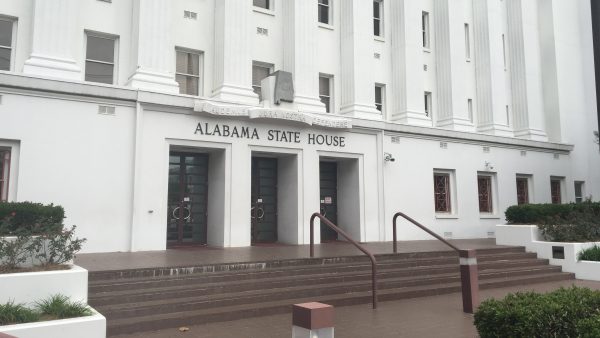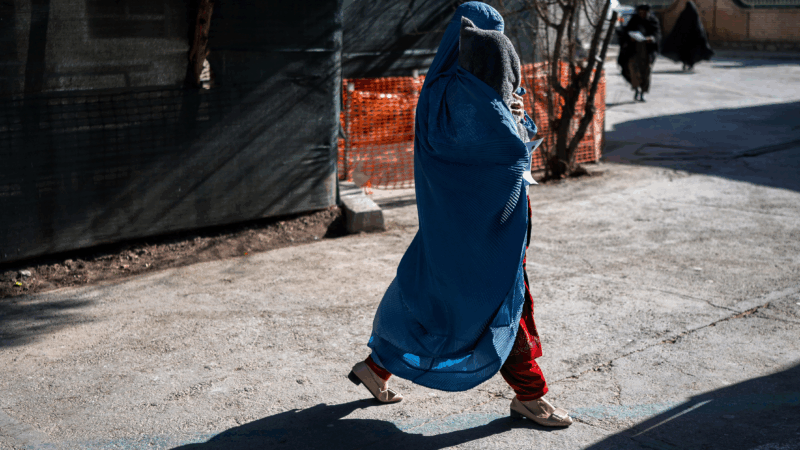Some Alabama Hospitals may Drug Test New Moms without their Consent
In Alabama, drug abuse by pregnant women is considered child abuse. The state is one of three that allows mothers to be criminally prosecuted for it. But some women appear to have been drug tested by hospitals without their consent and without being informed they could be arrested for a positive result.
Those are the findings of an investigation by al.com and ProPublica. ProPublica reporter Nina Martin took part in the investigation.
Widely Varying Policies
Martin says of the hospital testing policies they could obtain, they found a range of practices.
“Some hospitals in Alabama apparently test all women,” said Martin. “Some apparently test all babies. Some may do both.”
Martin says other hospitals test women and possibly babies based on certain criteria. For instance, if a mother looks high or has certain pregnancy complications, she may be more likely to be tested.
“A major one though is a lack of prenatal care or inadequate prenatal care,” said Martin.
Martin says if a mother and baby test positive for an illegal drug, it’s generally understood that information is to be turned over to the Department of Human Resources — the child welfare agency in Alabama.
“Some hospitals may also be giving that information directly to law enforcement,” said Martin. “DHR does turn that information over to law enforcement.”
Questionable Consent Practices
The American College of Obstetricians and Gynecologists recommends mothers only be tested if they have informed consent.
“That means not just that the mothers are given a piece of paper to sign, but that the doctors explain what’s going on.” said Martin. Women are also to be told about the potential consequences if she tests positive.
“That doesn’t seem to happen in very many Alabama hospitals,” said Martin.
Martin said the majority of hospital consent forms they obtained do not mention drug testing and instead include it under generic terms such as a “diagnostic procedure.”
There is one U.S. Supreme Court case, Ferguson v. City of Charleston, that touches on the issue. In 2001, the court ruled a public hospital in South Carolina which involuntarily drug tested women and then turned the results over to law enforcement only for prosecution purposes violated the fourth amendment’s protection against unreasonable searches and seizures.
“The case actually left the issue of consent very unclear,” said Martin.
ProPublica and al.com shared the Alabama hospital consent forms with legal experts. Martin says they all said the forms were unclear and not the standard for consent. They could be unconstitutional.
Little Response from Hospitals
Martin says most hospitals didn’t want to participate in the investigation.
“[The hospitals said] it was not their policy to discuss these issues in public,” said Martin.
Martin said she spoke with representatives of the Alabama Department of Public Health. One confirmed there is no consistency in testing policies among hospitals. She said the state didn’t know which hospitals used which approach.
“Even public health officials in Alabama who are charged with caring for and directing programs for pregnant women and new mothers don’t know hospital testing policies,” said Martin.
A parallel investigation by ProPublica and al.com examined Alabama’s use of the chemical endangerment law to prosecute mothers.
Supreme Court strikes down Trump’s tariffs
The 6-3 ruling is a major blow to the president's signature economic policy.
The economy slowed in the last 3 months of the year — but was still solid in 2025
The U.S. economy grew 2.2% in 2025, a modest slowdown from 2.4% the previous year. GDP gains were fueled by solid consumer spending and business investment.
Ali Akbar, who’s sold newspapers on the streets of Paris for 50 years, is now a knight
For decades, Ali Akbar has sold papers on the Left Bank of Paris. Last month, France gave the beloved 73-year-old immigrant from Pakistan one of its highest honors — and his neighborhood is cheering.
Bill limiting environmental regulations goes to the governor’s desk
President Trump has taken steps to roll back environmental regulations. Some of that same action is taking place in statehouses, including Alabama's. Lawmakers gave final passage this week to a bill that would ban the state from enacting environmental rules more stringent than those at the federal level. That's where we start our weekly legislative update with Todd Stacy, host of Capitol Journal on Alabama Public Television.
For years the Taliban told women to cover up in public. Now they’re cracking down
At hospitals, at seminaries and on buses, the Taliban is stepping up enforcement of rules on women's dress in the city of Herat.
What I learned watching every sport at the Winter Olympics
Sit down with pop culture critic Linda Holmes as she watches the 2026 Winter Games. She is exhausted by cross-country, says "ow ow ow" during moguls, and makes the case, once and for all, for curling.





